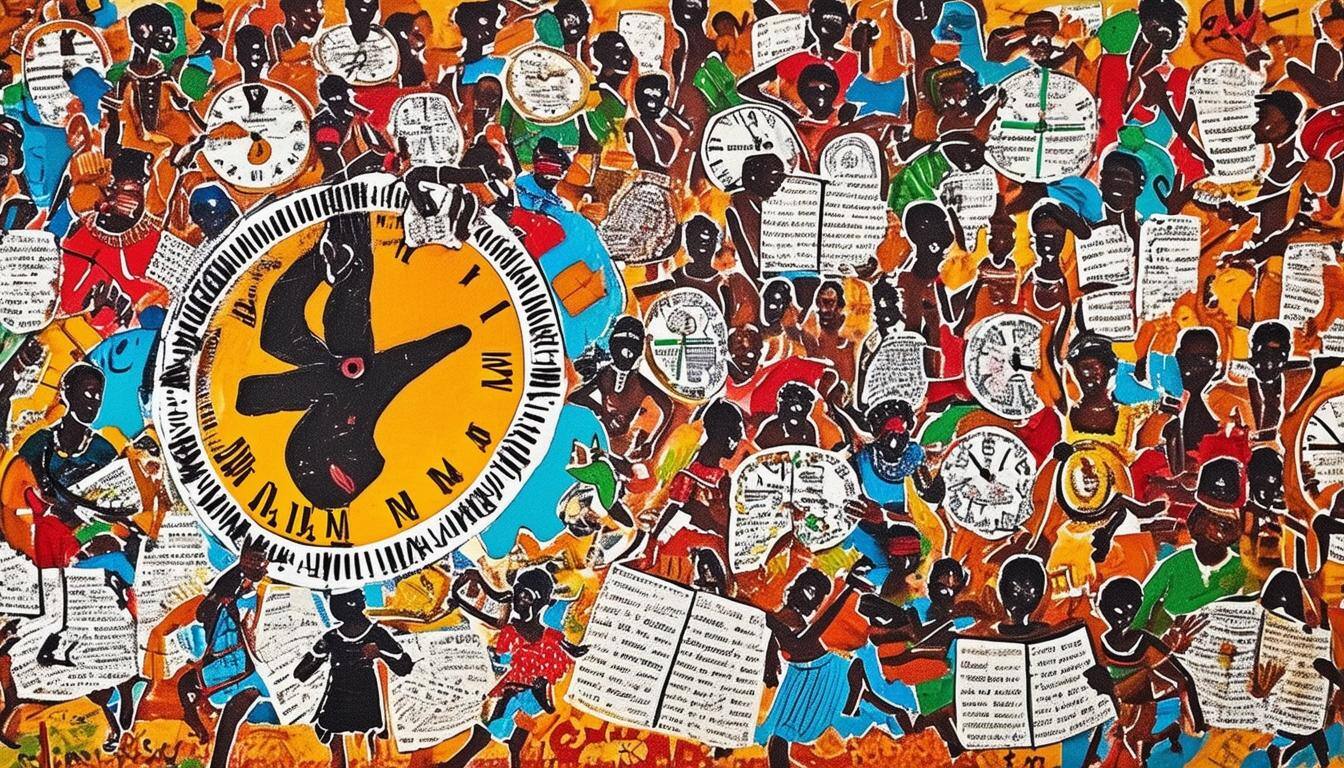“African Time” and Language Projects: Personal Accounts from Linguists on the Ground
Language Models • Oct 28, 2024 11:00:00 AM

In the vibrant tapestry of Africa’s linguistic landscape, the notion of “African Time” reflects more than just a flexible approach to schedules; it embodies a rich cultural ethos that influences everything from social interactions to collaborative projects. In the realm of pharmaceutical translation, this concept takes on unique significance as linguists navigate not only the complexities of language but also the nuances of time and culture. In this article, we explore personal accounts from linguists working on the ground in Africa, shedding light on their experiences with language projects in the pharmaceutical sector.
The Dance of Time and Language
For many linguists, the phrase “African Time” is both a challenge and an opportunity. As Dr. Amina Mwanga, a linguist specializing in Swahili translation, explains, “In many African cultures, relationships often take precedence over strict schedules. This can be challenging when coordinating translation projects that require timely delivery, but it also allows for deeper connections and understanding.”
Dr. Mwanga recounts her experience working with a pharmaceutical company to translate critical health information into local dialects. “We had meetings that started late, sometimes hours behind schedule. At first, it was frustrating, but I realized that these moments were invaluable for building trust within the community,” she says. This relationship-building ultimately led to more effective translations that resonated with local audiences.
Adapting to Cultural Contexts
The intricacies of language in the pharmaceutical industry extend beyond mere words. Linguists must consider cultural contexts, healthcare practices, and the diverse ways in which communities understand medical information. Sarah Ndlovu, a project manager for a translation initiative in Zimbabwe, shares her insights: “It’s crucial to go beyond the literal translation. We have to ensure that the messages align with local beliefs about health and medicine.”
Sarah recalls working on a campaign to educate rural populations about a new vaccine. “We had to adapt the terminology to ensure it was not only understood but also culturally accepted. This process involved engaging with local leaders and health workers, which took time but was absolutely necessary.”
The Challenge of Resources
Resource limitations are another factor that often influences the pace of translation projects. Dr. Mwanga notes that while technology has improved access to information, many regions still lack the infrastructure to support timely project execution. “Internet connectivity can be inconsistent, especially in remote areas. This affects our ability to collaborate efficiently,” she explains.
Yet, linguists find creative solutions. “We often rely on mobile technology to send translations and gather feedback, leveraging the widespread use of smartphones,” Dr. Mwanga adds. These adaptations showcase the resilience and innovation of linguists committed to their work.
Personal Connections and Community Engagement
One of the most rewarding aspects of working in pharmaceutical translation is the personal connections formed along the way. Linguists often become integral parts of the communities they serve. Sarah shares, “I’ve built lasting friendships with local health workers and community members. They teach me about their lives, and in return, I help ensure that vital health information is accessible to them.”
These connections enhance the quality of translations, as linguists gain deeper insights into the community’s needs. “It’s not just about translating documents; it’s about creating a dialogue that respects and reflects local realities,” she emphasizes.
Looking Ahead: Embracing Flexibility and Understanding
As linguists continue to navigate the complexities of pharmaceutical translation in Africa, the interplay of “African Time” and language projects will remain a crucial theme. Embracing flexibility and understanding is essential for success.
Both Dr. Mwanga and Sarah agree that patience and adaptability are key traits for anyone working in this field. “We’re not just translators; we’re facilitators of communication and understanding,” Dr. Mwanga concludes.
Conclusion: A Call for Collaboration
In the ever-evolving landscape of pharmaceutical translation, the experiences of linguists on the ground highlight the importance of cultural sensitivity, community engagement, and adaptability. As we move forward, collaboration between linguists, healthcare providers, and local communities will be vital to ensuring that health information is not only accessible but also meaningful.
If you’re passionate about making a difference in global health communication, consider supporting initiatives that promote effective translation and engagement within diverse communities. Together, we can bridge language barriers and create a healthier, more inclusive world.
